N. Katherine Hayles
All rights reserved.
No part of this book may be used or reproduced in any manner whatsoever without written permission, except in the case of brief quotations in critical articles and reviews. For more information, contact the University of Chicago Press,
1427 East 60th Street, Chicago, IL 60637.
Title: Unthought : the power of the cognitive nonconscious / N. Katherine Hayles.
Description: Chicago ; London : The University of Chicago Press, 2017. | Includes bibliographical references and index.
Identifiers: LCCN 2016036767 | ISBN 9780226447742 (cloth : alk. paper) | ISBN 9780226447889 (pbk. : alk. paper) | ISBN 9780226447919 (e-book)
Subjects: LCSH: Cognition. | CognitionSocial aspects. | CognitionPhilosophy. | Sociotechnical systems. | Subconsciousness. | Cognition in literature.
Classification: LCC BF311 .H395 2017 | DDC 154.2dc23 LC record available at https://lccn.loc.gov/2016036767
This book could not have come into being had it not been for the generous assistance, intellectual stimulation, and collaborations that helped to catalyze my thoughts (and unthoughts), refine my arguments, and extend my reach. Of primary importance were funding sources that gave me the time to think and writea sabbatical year from Duke University, a fellowship from the Institute of Advanced Study at the University of Durham, UK, and an appointment as the Critical Inquiry Visiting Professor at the University of Chicago. I am pleased to acknowledge their assistance.
During my months in Durham (UK), the windy winter days were warmed by the friends I made there, including Linda Crowe, Mikhail Epstein, Gerhard Lauer, Gerald Moore, Richard Reed, Nicholas Saul, and Veronica Strang. At the University of Chicago, the unparalleled Tom Mitchell was a constant friend, Bill Brown, an inspiring presence, Frances Ferguson, consistently friendly and generous with her time; and the Society of Fellows offered an opportunity for challenging and insightful exchanges. Hank Scotch provided material help and scrupulously accurate copyediting assistance.
Also crucial were scholars who were willing to share their forthcoming work with me before it appeared in print, including Louise Amoore, Ulrik Ekman, Mark Hansen, William Hutchison, Ann-Christina Lange, Luciana Parisi, and Patrick Whitmarsh. Their trust that I would handle these resources appropriately warmed my heart. Providing support and stimulation were my outstanding colleagues at Duke University (Durham, NC), including Rey Chow, Elizabeth Grosz, Mark Hansen, Barbara Herrnstein-Smith, Deborah Jenson, Tim Lenoir, Victoria Szabo, Toril Moi, Antonio Viego, and Robyn Wiegman. At Duke Kunshan University, where I taught in fall 2015, especially important for my months there was the support of Andrew Field, Haiyan Gao, and Deedra McClearn. Mark Kruse, my co-teacher in our course Science Fiction/Science Fact, deserves special mention for his remarkable patience, clear expositions, and generosity in providing guidance to me and our students as we probed the complexities of quantum mechanics and relativity theory. Providing help and valuable resources was my research assistant Maryann Murtagh. Marjorie Luesebrink, a lifelong friend, lighted up innumerable conversations and dinners together as we hashed over many of the ideas that found their way into this book.
One of the delights of getting older is to see ones former students flourish in their own right, often with cutting-edge work that exceeds whatever I might have accomplished. I have been fortunate to work with an extraordinarily talented group of young scholars who are now setting the agendas for their fields, including Olivia Banner, Zach Blas, Nathan Brown, Todd Gannon, Amanda Gould, Patrick Jagoda, Melody Jue, Patrick Le Mieux, Kate Marshall, Jessica Pressman, David Rambo, Jenny Rhee, Allen Riddell, David Shepard, John Stadler, and Vidar Thorsteinsson.
I am indebted to many scientists, cultural critics, media theorists, and humanists whose writing and research were crucially important for this project and for my work in general, including Karen Barad, Lauren Berlant, Rosi Braidotti, Jean-Pierre Changeux, Antonio Damasio, Stanislas Dehaene, Gerald Edelman, Danuta Fjellestad, Elizabeth Grosz, Mark Hansen, Donald MacKenzie, Franco Moretti, Luciana Parisi, Garrett Stewart, and Giulio Tononi. Alan Thomas, my editor at the University of Chicago Press, has been a constant friend and colleague now for many years, and I owe him a tremendous debt of gratitude for his steadfast support.
My greatest debt, as always, is to my partner and friend, Nicholas Gessler, who never fails to amaze with his encyclopedic knowledge of everything technical, his dedication to figuring things out for himself, his curiosity about the material world, and his love, warmth, and generosity.
I am grateful to the following for giving me permission to reprint previously published material in this book: most of chapter 2 appeared as The Cognitive Nonconscious: Enlarging the Mind of the Humanities in Critical Inquiry 4 (4): 783808 (Summer 2016), and most of chapter 5 also appeared in Critical Inquiry, Cognitive Assemblages: Technical Agency and Human Interactions 5 (1) (Autumn 2016), 2016 by The University of Chicago, all rights reserved; portions of chapter 6 appeared as The Cognitive Nonconscious and Automated Trading Algorithms, in Parole, criture, code, edited by Emmanuele Quinz, translated by Stphane Vanderhaeghe, Petite Collection ArtsH2H (Paris-Dijon: Les presses du rel, 2015); and portions of chapter 8 appeared as Cognition Everywhere: The Rise of the Cognitive Nonconscious and the Costs of Consciousness, in New Literary History 45.2 (Spring 2014): 199220.
Transforming How We See the World
When he looked at me with his clear, kind, candid eyes, he looked at me out of a tradition thirteen thousand years old: a way of thought so old, so well established, so integral and coherent as to give a human being the unself-consciousness of a wild animal, a great strange creature who looks straight at you out of his eternal present.
The epigraph, from Ursula Le Guins science fiction novel The Left Hand of Darkness, describes the encounter of protagonist Genly Ai with Faxe, acolyte of the Zen-like cult of the Handdarata and their tradition of unlearning (57). Given to negatives (57), the Handdarata would immediately recognize unthought as indicating a kind of thinking without thinking. There is thought, but before it is unthought: a mode of interacting with the world enmeshed in the eternal present that forever eludes the belated grasp of consciousness.
Unthought may also be taken to refer to recent discoveries in neuroscience confirming the existence of nonconscious cognitive processes inaccessible to conscious introspection but nevertheless essential for consciousness to function. Understanding the full extent of their power requires a radical rethinking of cognition from the ground up. In addition, because the very existence of nonconscious cognitive processes is largely unknown in the humanities, unthought indicates the terra incognita that beckons beyond our received notions of how consciousness operates. Gesturing toward the rich possibilities that open when nonconscious cognition is taken into account, unthought also names the potent force of conceptualizing interactions between human and technical systems that enables us to understand more clearly the political, cultural, and ethical stakes of living in contemporary developed societies.

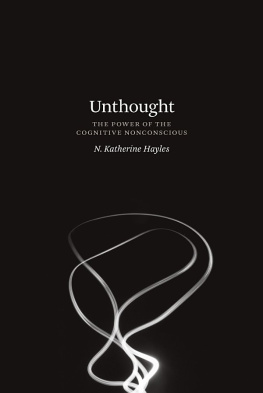
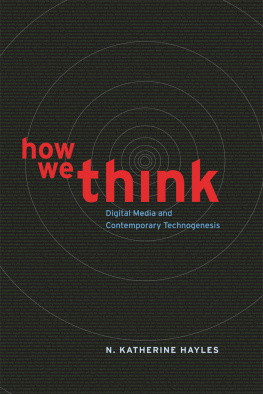
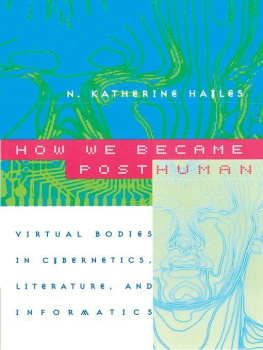

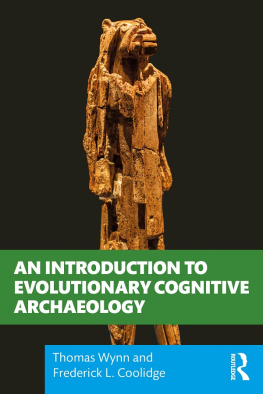
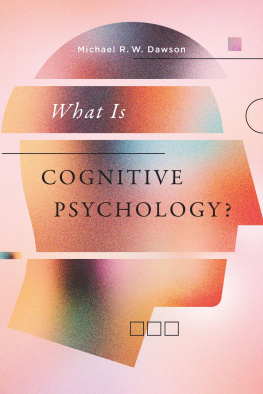
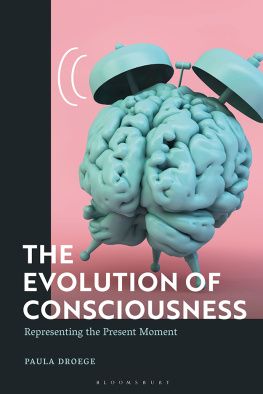

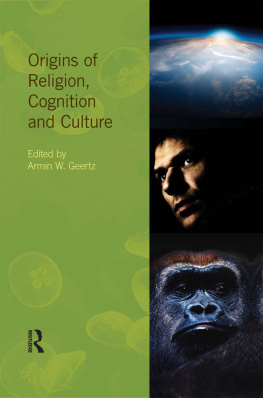
 This paper meets the requirements of ANSI/NISO Z39.481992 (Permanence of Paper).
This paper meets the requirements of ANSI/NISO Z39.481992 (Permanence of Paper).